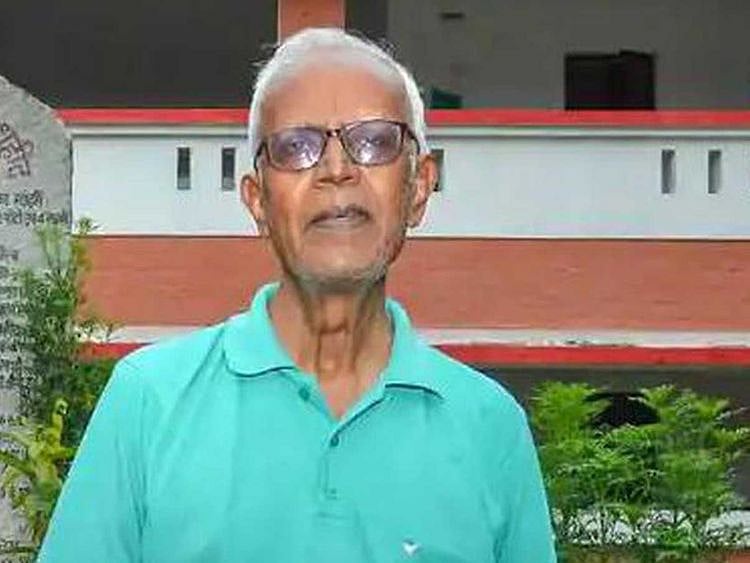Also In This Package
What are travel rules for India, South Africa, Nigeria?
Doctors’ Day in India: Bollywood stars share support
Reader's photos: Wildlife at Ranthambhore, India
Transfers: Kane moving to Manchester United, not City?
Look: Health workers vaccinate Kashmir nomads
Photos: Top 10 Darley July Cup winners in history
“What is happening to me is not something unique, happening to me alone. It is a broader process that is taking place all over the country, We are all aware how prominent intellectuals, lawyers, writers, poets, activists, student leaders- they are all put in jail just because they have expressed their dissent or raised questions about the ruling powers, so we are part of the process. In a way I am happy to be part of this process, because I am not a silent spectator but am part of the game and ready to pay the price, whatever be it”.
These were the words of Father Stan Swamy, a Jesuit priest and well known tribal rights activist, shortly before his arrest by India's NIA (National Investigating Agency) in October 2020, on charges of being a member of the banned CPI-Maoist.
The agency claimed to have found “incriminating” documents on Swamy’s laptop but Swamy strongly denied the allegations, saying this material had been planted on his computer.
The 84 year old Swamy died in custody this past week while waiting for bail. Facing international criticism, including from human rights officials of the EU, the UN, and the US, India's Ministry of External Affairs issued a statement that “Swamy’s detention followed due process of law”.
Bail rejected multiple times
Since his arrest, Stan Swamy’s bail was rejected multiple times by the courts and consistently opposed by the NIA on both merit and medical grounds.
Swamy already had Parkinsons disease when he was taken to prison. His health only worsened in jail, his hands used to tremble so much that he could not even sign his name. Because he could not even drink water from a glass properly, Swamy asked for a sipper and a cup.
The jail authorities simply said no. Is this “due process”? Swamy’s lawyers had to petition the court and he finally got the sipper nearly 2 months later. Is this “due process”? It is a cruel irony that Swamy’s death was announced to the court during his latest bail hearing.
The NIA claims that the 16 people arrested in the Elgar Parishad/Bhima Koregaon case have links with the banned CPI-Maoist.
Those arrested include activist-lawyer Sudha Bharadwaj, lawyer Surendra Gadling and others. On January 1, 2018, hundreds of thousands of Dalits had gathered near Pune to commemorate the 200th anniversary of the Battle of Bhima Koregaon, and the gathering turned violent.
The police claim the violence was triggered by another event called Elgar Parishad held on December 31, 2017 in which the accused were involved.
Where is the evidence?
So what was the “evidence” the NIA had against Swamy? The agency told the court it amounted to emails exchanged between Swamy and the other co-accused and that in 2019, Swamy had attended a protest against the arrests of human rights activists in the Elgar Parishad case.
Swamy, meanwhile claimed the documents found on his laptop had been planted and that they had no details such as who was the sender and who was the receiver, no date and no signature.
Significantly, while the NIA arrested Stan Swamy in this case, they never sought his custody to interrogate him. Not even for a single day. His lawyer has asked, what was the need to arrest him then?
As the Indian Express reported, “the court, while rejecting Swamy’s bail plea in March this year, had said that his grounds for seeking relief, including his old age and sickness, “were outweighed by the collective interest of the community”.
Swamy’s arrest, along with that of other activists in different cases over the last few years, has also highlighted how difficult or nearly impossible it is to get bail under the stringent provisions of the anti-terror law, the UAPA.
Various courts, including the Delhi High Court, have found the law arbitrary, since it gives police the power to pretty much arrest someone without any evidence and presumes the guilt of those arrested.
Importantly, there is now serious cause for an investigation into whether “evidence” against the Bhima Koregoan accused was planted.
The Washington Post and other media have reported that a US digital forensics firm has come to the conclusion that the laptops of at least two of the accused, Surendra Gadling and Rona Wilson, had incriminating material planted on them over a period of 20 months. There is no sign of a trial taking place anytime soon.
Stan Swamy’s death poses a massive question before India’s judiciary. Will they step in now and salvage their reputation?
Network Links
GN StoreDownload our app
© Al Nisr Publishing LLC 2026. All rights reserved.
